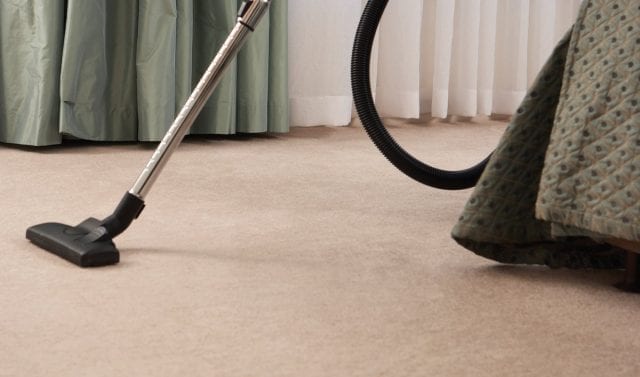
January 21, 2014. Alexandria. A Virginia State Court of Appeals last week upheld a local Alexandria Circuit Court’s ruling that the online review site Yelp must turn over the actual identities of some of its website’s users.
A local business owner accused Yelp of letting scam artists spam its reviews with negative comments solely to discredit the business. Yelp refused citing 1st Amendment rights.
It’s a tricky question – do consumers have the right to anonymously give their opinion about business or individuals in a public forum? The answer, as ruled by the Virginia Appeals Court last week, is that consumers have the right to give a negative review. They just don’t have a right to do it anonymously.
Hadeed Carpet Cleaning

A small, mom and pop carpet cleaning company in Alexandria, Virginia may turn out to be the catalyst for the US government’s rewriting of the unofficial rules governing the world wide web here in the US. Who would have thought that one angry small business owner could have brought an internet giant like Yelp to its knees? But that’s exactly what happened.
Throughout 2012, negative reviews of Hadeed Carpet Cleaning in Alexandria were being posted on the online business review site Yelp. In its ruling last week, the court recognized that there were 75 customer reviews, while “a number of reviews were critical of Hadeed.” The owner of Hadeed Carpet Cleaning must take exceptional pride in his work because he couldn’t believe that any of his customers could be unsatisfied, much less a bunch of them.
He scoured his customer records and recent work orders trying to identify the unhappy customers and what could have possibly motivated them to post such bad reviews of his company’s work.
But he couldn’t match up the anonymous complaints with past jobs. Hadeed then arrived at the suspicion that he and his business were the victims of a dirty, and possibly illegal, trick by a local competitor. Or maybe it’s just hate-inspired defamatory speech attempting to sabotage his small carpet cleaning business.
Right to online anonymity

As detailed by Web Pro News last week, Hadeed reached out to Yelp in an attempt to discover the real identities of seven specific Yelp reviewers who gave his carpet cleaning business bad reviews. Yelp refused citing its users’ right to anonymity. But Hadeed had two trump cards, as confirmed by both the local court in Alexandria and the Appeals Court last week.
First, the business owner insisted he and his store were the victims of a crime, specifically, defamation. And the internet only guarantees user anonymity until a crime is committed. Second, Hadeed poured through Yelp’s Terms of Service. According to the website’s own published rules, only actual customers of each respective business being reviewed are allowed to post reviews. Hadeed insisted that the seven particular negative reviewers weren’t actual customers and insisted Yelp disclose their identities so they could be held liable in court.
Pro-business owners are siding with Hadeed, arguing that it’s against the law to unjustly slander or defame a person or business. They insist it doesn’t matter where a person is standing when they commit the crime, or what medium they use to do it. Slander and defamation, they argue, aren’t protected forms of free speech.
Supporters of online anonymity, while not having an argument against the defamation portion, have sided with Yelp. They insist that the Virginia Appeals Court was wrong in its decision and a higher court will surely overturn the ruling calling on Yelp to expose its users’ actual identities.
They say that a defamation case only exists if victims can demonstrate they suffered actual damage, physical, financial or otherwise. Hadeed’s Carpet Cleaning apparently hasn’t been able to show a single customer or job is lost due to the Yelp reviews.
For its part, Yelp spokespeople have shrugged off the Virginia court order. The website has no intention of turning over the identities of any of its online reviewers, regardless of any American court order. As the spokespeople explain, Yelp is a “non-party, foreign corporation.” The website is however incorporated in Delaware like most multi-national corporations operating in the US. It was upon Yelp’s registered US agent that the court served its subpoenas.
The court’s own words
In ruling in favor of Hadeed Carpet Cleaning, the court wrote, ‘As of October 19, 2012, Yelp’s website displayed seventy-five reviews about Hadeed and eight reviews about a related company, Hadeed Oriental Rug Cleaning.
These reviews were posted by various Yelp users, and a number of the reviews were critical of Hadeed. Hadeed filed suit against the authors of seven specific critical reviews. In these reviews, the authors implicitly or explicitly held themselves out to be Hadeed customers. In its complaint, Hadeed alleged that it tried to match the negative reviews with its customer database but could find no record that the negative reviewers were actually Hadeed customers.
Consequently, Hadeed alleged that the negative reviewers were not actual customers; instead, the Doe defendants falsely represented themselves to be customers of Hadeed. Hadeed’s complaint further alleged that the negative comments were defamatory because they falsely stated that Hadeed had provided shoddy service to each reviewer.’
Yelp responds

After the ruling last week, Yelp officials released a public statement, a portion of which was republished in the above-linked Web Pro News report. The company wrote, ‘We are disappointed that the Virginia Court of Appeals has issued a ruling that fails to adequately protect free speech rights on the internet, and which allows businesses to seek personal details about website users – without any evidence of wrongdoing – in efforts to silence online critics.
Other states require that plaintiffs lay out actual facts before such information is allowed to be obtained, and have adopted strong protections in order to prevent online speech from being stifled by those upset with what has been said. We continue to urge Virginia to do the same.’
All legal arguments aside, Yelp has seen its business model under attack for some time now. In September, the state of New York settled out of court with 19 companies that admitted to posting fake Yelp reviews as a marketing tactic.
They collectively agreed to pay $350,000 in fines. At the same time, Yelp sued another company whose business model revolved around writing fake Yelp reviews for a fee. Doing the most damage, however, was a study from Harvard released at the same time that showed as many as one in five Yelp restaurant reviews are phony.
Yelp has indicated it intends to fight the court order. And the result may be a shift in online policing. Until now, any court order, civil or criminal, forced websites to turn over the identities of its users. The line may be moving to the point where websites only turn over personal information in the case of a criminal court order.
Civil courts, often criticized as being the playground of the rich and powerful, may not be sufficient grounds to force global websites to violate the trust of their online members anymore, at least if Yelp has anything to say about it.








